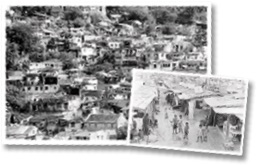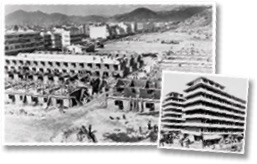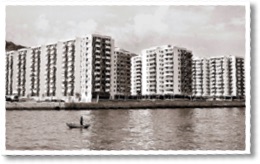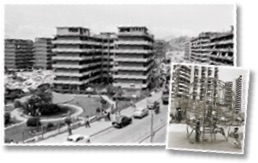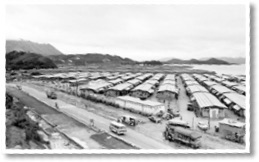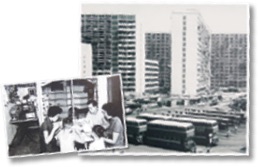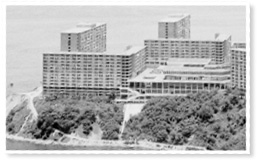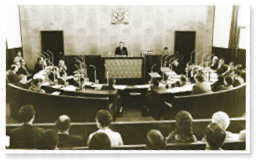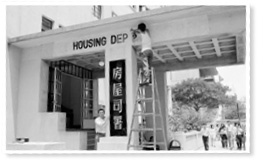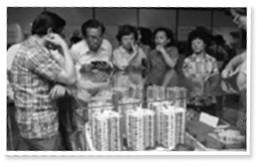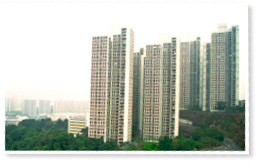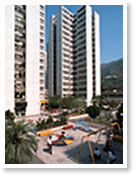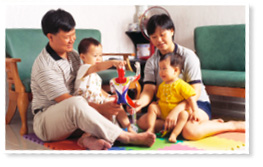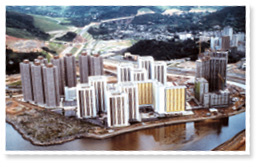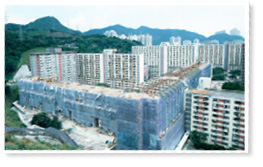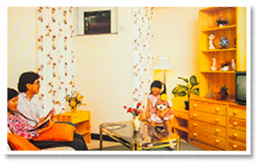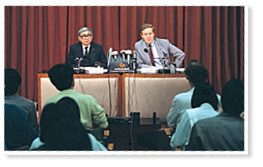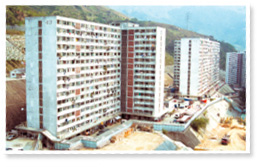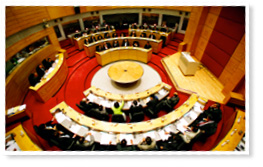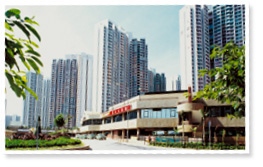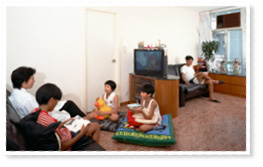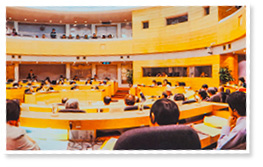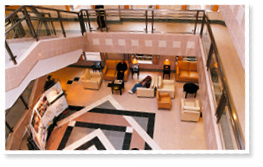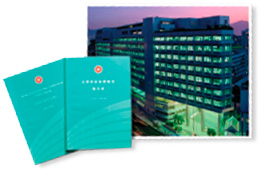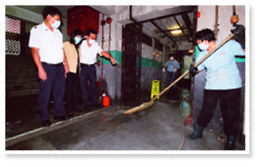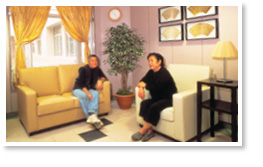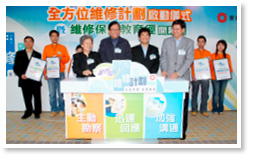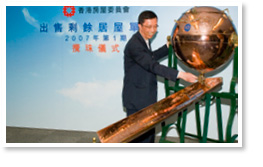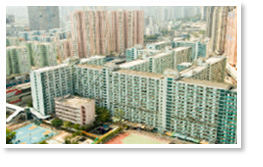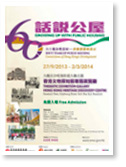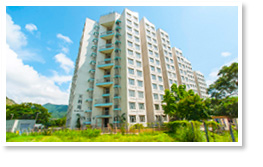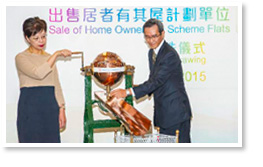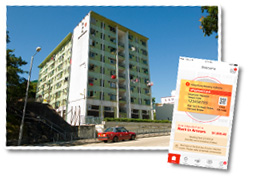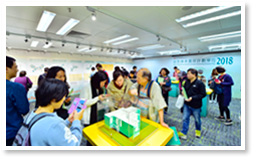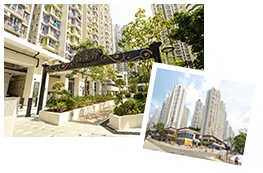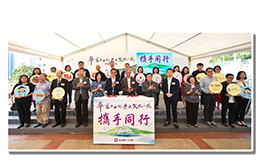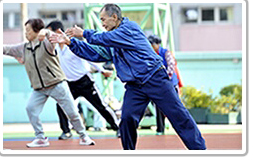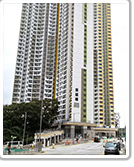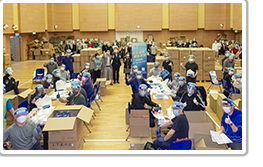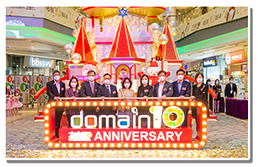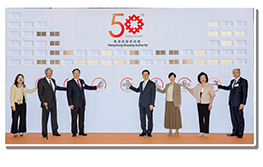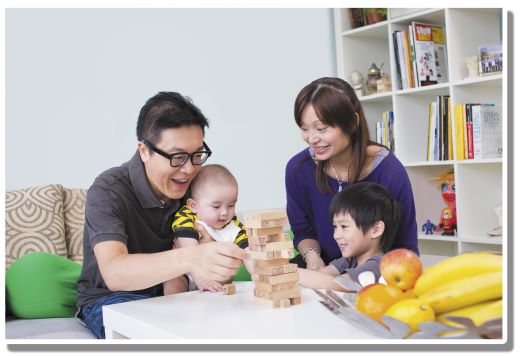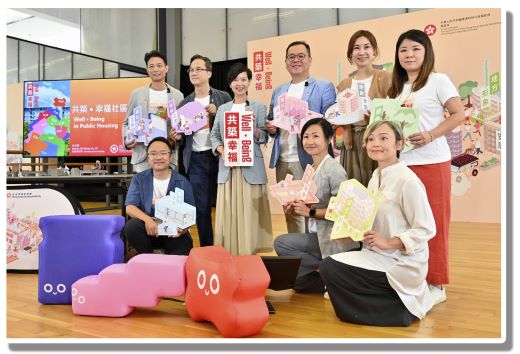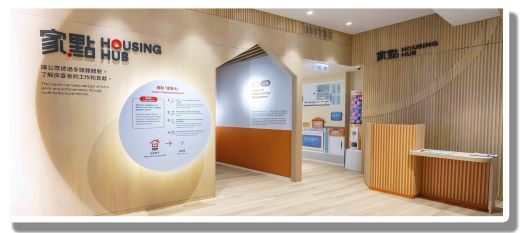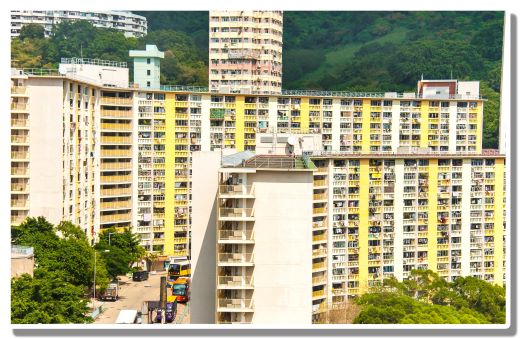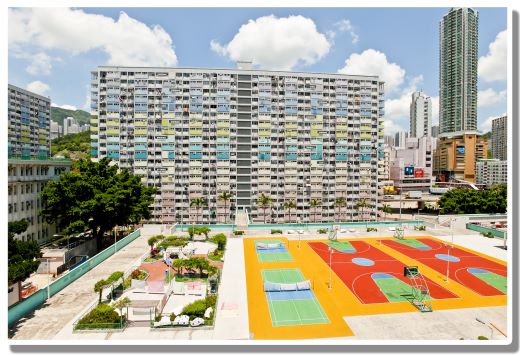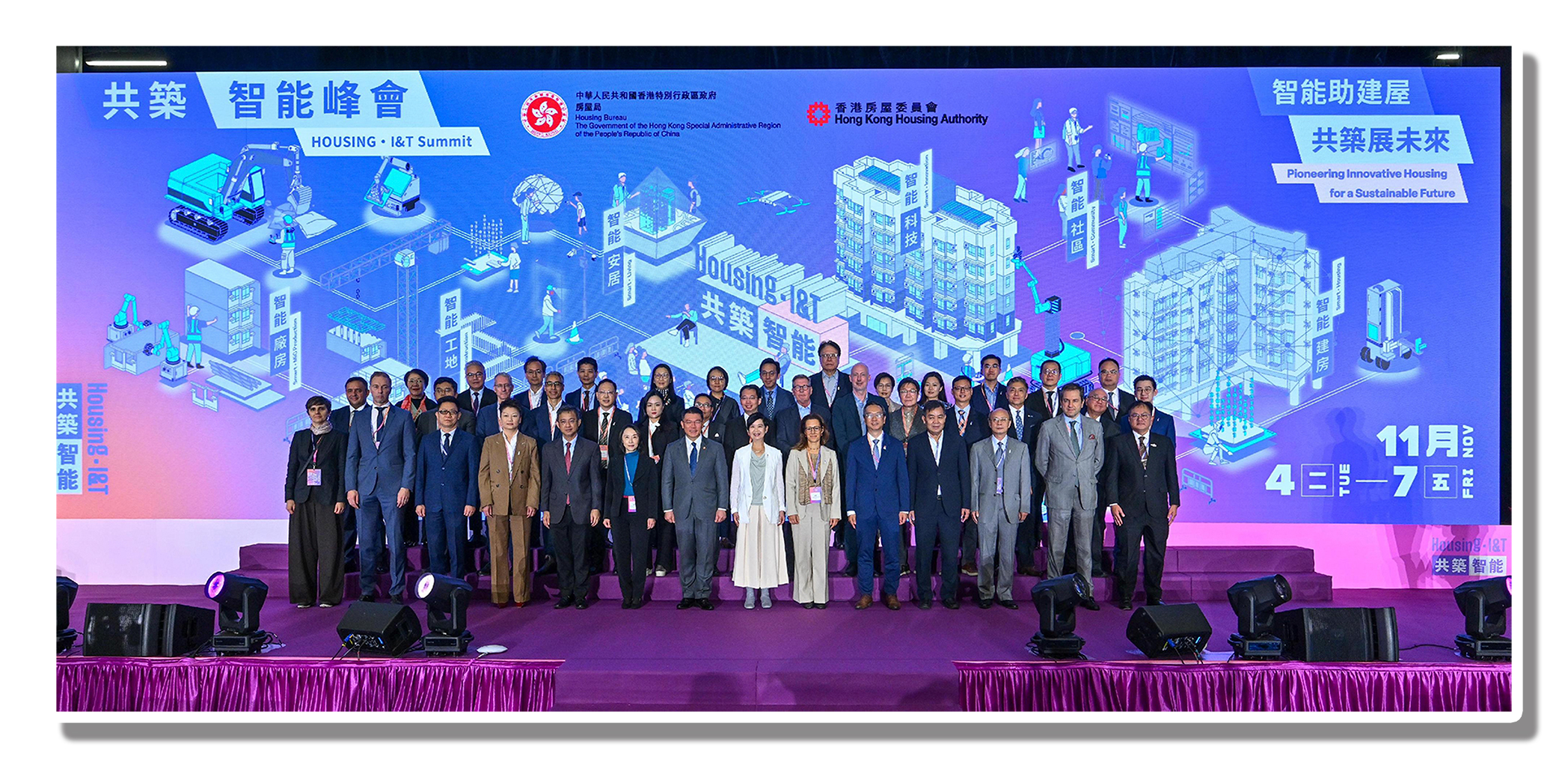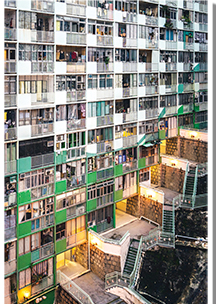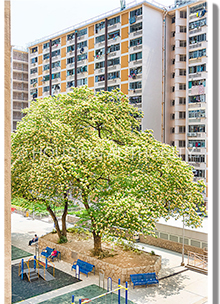Public Housing Development
Public Housing Development
HA endorsed tightening of "Well-off Tenants Policies" and reviewed the implementation details in March to expedite the circulation of PRH flats and encourage upward mobility of well-off tenants.
In November, HA's Subsidised Housing Committee approved a series of measures that encourage upward mobility through the housing ladder, including increasing the quota and enhancing the arrangements of the White Form Secondary Market Scheme, and relaxing the alienation restriction period of new subsidised sale flats that will be put up for sale in the open market.
Masses of people surged into Hong Kong due to political turmoil on the mainland. This led to a drastic increase in the number of squatters. Fires were common in these unhygienic and cramped make-shift homes.
A tragic fire that broke out on Christmas night devastated the squatter area in Shek Kip Mei, making more than 50 000 people homeless overnight.
The government immediately built two-storey bungalows on the site to provide temporary shelter to the victims.
The government set up a fund for constructing multi-storey resettlement buildings and appointed a Commissioner for Resettlement to coordinate the task.
A semi-independent organisation, the former Housing Authority was also set up to provide lower middle income families low-cost housing with self-contained flats.
Eight six-storey Mark I resettlement blocks were completed in Shek Kip Mei to rehouse the fire victims.
The government decided to implement a systematic resettlement programme.
The Government Low-cost Housing Programme was formally implemented to provide rental accommodation of a higher quality than the resettlement estates.
The government published a white paper entitled "Review of Policies for Squatter Control, Resettlement and Government Low-cost Housing".
The Temporary Housing Scheme was launched to accommodate those who were not immediately eligible for permanent public housing.
Wah Fu Estate, the first public housing estate planned as a self-contained community, was completed. It came with shopping malls, schools, bus terminus and other community facilities.
The government announced a Ten-year Housing Programme which targeted to provide self-contained accommodation for 1.8 million people between 1973 and 1982.
The original public housing bodies were reorganised and a new Hong Kong Housing Authority (HA) was established to take forward the government's public housing programme.
The government also set up the Housing Department, by merging the Resettlement Department and the Building Section of the Urban Services Department, to serve as the HA's executive arm.
Redevelopment of the Mark I and Mark II blocks began, starting with those in Shek Kip Mei Estate.
The government decided to implement the Home Ownership Scheme (HOS) to enable lower middle income families and public rental housing (PRH) tenants acquire their own homes.
Flats in six courts were offered for sale under the first phase of the HOS.
To speed up the HOS programme, the government invited the private sector to participate in the building of HOS flats under the Private Sector Participation Scheme (PSPS).
The government announced the Ten-year Housing Programme would be extended for another five years to 1987.
The Extended Redevelopment Programme was launched to clear sub-standard blocks built in the 1960s.
The government formulated a Long Term Housing Strategy, setting the framework for Hong Kong's housing policy from 1987 to 2001.
Starting from April of the year, tenants having lived in PRH for ten years or more are required to declare their household income biennially and pay double rent if their income has exceeded the prescribed limit.
The HA concluded a set of Financial Arrangements with the government and has become financially more independent. It was also reorganised, with a non-official person appointed as its Chairman for the first time.
The Home Purchase Loan Scheme was launched to assist eligible families in acquiring home ownership in the private market.
A Comprehensive Redevelopment Programme (CRP) was launched to gradually demolish and redevelop 566 blocks built before 1973.
Redevelopment of the Mark I and Mark II buildings and the related rehousing programme were completed.
The HA began opening all its regular meetings to the public.
The first series of Harmony blocks, which marked a new generation of public housing, were completed.
The Housing Subsidy Policy was reformulated, requiring well-off tenants to pay 1.5 or 2 times the net rent plus rates.
A new Housing Branch under the Government Secretariat was established to formulate policies and strategies for both public and private housing development.
The HA reached a Supplemental Agreement with the government on new financial arrangements.
Following the success of a pilot scheme in the previous year, the HA decided to implement the Estate Management Advisory Committee scheme in all its PRH estates. The aim was to involve the tenants more in the management of the estates.
The Policy on Safeguarding Rational Allocation of Public Housing Resources was introduced, whereby well-off tenants would be required to pay market rents or even vacate their PRH flats.
The HOS Secondary Market Scheme was launched to increase the turnover of HOS flats.
The first Housing for Senior Citizens in Ping Tin Estate was completed.
The Hong Kong Special Administrative Region (HKSAR) Government was set up. It announced a housing plan which aimed to achieve 70% home ownership rate in ten years.
The Tenants Purchase Scheme (TPS) was launched to allow tenants to purchase the PRH flat they were living in at a very affordable price. The first phase saw the sale of flats in six estates.
The new Concord blocks featuring quality designs as well as better fittings and finishes were offered for sale under the HOS.
The Mortgage Subsidy Scheme was introduced to provide monthly subsidies to tenants affected by the CRP for purchasing HOS flats.
The HA undertook a series of reforms on public housing quality to restore public confidence after the sub-standard piling incidents in 1999/2000.
The HA started to outsource the management and maintenance of its estates to property services agents.
Clearance of the last Temporary Housing Area in Sha Kok Mei marked the end of this type of housing which had lasted for 40 years.
The pilot Rent Allowance for the Elderly Scheme was launched, offering eligible elderly applicants rent allowances in lieu of allocation of PRH flats.
In response to the conditions of the property market, the HA endorsed a moratorium on the sale of HOS and PSPS flats for ten months until end of June 2002.
The last three Cottage Areas in Mount Davis, So Kon Po and Lai Chi Kok were cleared.
The government published a report on the Review of the Institutional Framework for Public Housing.
The Housing, Planning and Lands Bureau was formed to oversee Hong Kong's overall housing policy.
The former Housing Bureau and the Housing Department were merged.
The Secretary for Housing, Planning and Lands made a statement on the reposition of the government's housing policy, which sets out to maintain a stable environment for the sustainable and healthy development of the private property market, as well as to provide subsidised public housing for people who cannot afford private rental housing.
In line with the repositioned housing policy, the HA announced that it would cease the production and sale of HOS and PSPS flats from 2003 onwards, and to terminate the TPS after the launch of the Phase 6 sale.
The Home Assistance Loan Scheme was launched to replace the Home Purchase Loan Scheme of the HA and the Home Starter Loan Scheme of the Housing Society.
For the first time since 1988, a government official, the Secretary for Housing, Planning and Lands, took up the role as Chairman of the HA.
In the aftermath of the SARS outbreak, the HA introduced a Marking Scheme to ensure public housing tenants keep their living environment clean and hygienic.
The pilot Rent Allowance for the Elderly Scheme was phased out.
The HA decided to suspend the sale of returned and unsold HOS flats until end of 2006.
The HA planned to divest its retail and car parking facilities through a Real Estate Investment Trust (REIT) model.
The HA launched an ex-gratia scheme to assist elderly property owner-occupiers in dilapidated private buildings to move into Housing for Senior Citizens.
The Home Assistance Loan Scheme was terminated.
The last sale phase of the TPS was launched.
A quota and points system was set up for non-elderly one-persons applying for PRH with a view to according priority to applicants of higher age.
The HA completed the divestment of 180 retail and car parking facilities to The Link REIT, following its listing on the Hong Kong Exchanges.
The Comprehensive Structural Investigation Programme was launched to ascertain the structural integrity of buildings in PRH estates that are around 40 years old.
The Total Maintenance Scheme was launched to boost the quality of maintenance and repair services in PRH estates.
The HA started to offer surplus HOS flats for sale in batches.
The Housing (Amendment) Bill 2007 was passed by the Legislative Council, enabling the establishment of a new rent adjustment mechanism for PRH based on changes in the household income of the tenants.
Following a reorganisation of the government bureaux, the Transport and Housing Bureau took charge of Hong Kong's housing policy and the Secretary for Transport and Housing assumed the role as Chairman of the HA.
A series of "Harmonious Families" housing arrangements was launched to promote mutual care and support among family members of different generations.
The redeveloped Shek Kip Mei Estate was officially opened, marking the first PRH estate to comprehensively adopt the Universal Design which supports ageing in place.
The HA conducted the first exercise of the biennial rent reviews stipulated by the new PRH rent adjustment mechanism which came into effect in January 2008.
The clearance of the last batch of domestic blocks at Lower Ngau Tau Kok marked the end of the CRP.
The Chief Executive’s 2011/12 Policy Address gave the HA the task of implementing the New Home Ownership Scheme.
Yau Lai Estate, the last phase of the Yau Lai PRH development project, was completed. The project piloted a number of green initiatives on a research and development basis, some of which have since been introduced as standard features in new PRH projects.
The HA announced plans to redevelop in phases the older portion of Pak Tin Estate in Sham Shui Po (comprising eight residential blocks and a commercial centre).
The HA’s largest shopping centre, “Domain”, in Yau Tong, Kowloon, was officially opened. Domain has eight storeys and covers a total gross floor area of around 45 000 square metres, comprising six themed zones and 150 shops.
The HA, the Antiquities and Monuments Office and the Chinese University of Hong Kong jointly organised an exhibition titled "Growing Up with Public Housing" to mark the 60th anniversary of public housing development in Hong Kong.
Completed an initial review of the redevelopment potential of 22 aged estates.
Tin Lee House, a public rental housing block in Lung Tin Estate, Tai O, was converted into a Home Ownership Scheme (HOS) block for sale and renamed as Tin Lee Court.
Five new HOS courts were offered for application in December during the Sale of HOS Flats 2014.
Ballot was drawn for the Sale of HOS Flats 2014 in March.
The Subsidised Housing Committee of the HA endorsed the implementation details of the Green Form Subsidised Home Ownership Pilot Scheme in May.
HA's Review Committee on Quality Assurance Issues Relating to Fresh Water Supply of Public Housing Estates submitted its Final Report to the HA Chairman, in which measures for dealing with inadequacies in the HA’s quality control mechanism in the past were recommended.
The joint application exercise of HA’s Sale of HOS Flats 2016 and the Hong Kong Housing Society’s Subsidised Sale Flats Project commenced in February.
Three new Home Ownership Scheme (HOS) courts were put up for sale in the Sale of HOS Flats 2017 at the end of March.
Clearance of Mei Tung House and Mei Po House at Mei Tung Estate, Wong Tai Sin was announced in August for redevelopment.
The HA's Subsidised Housing Committee (SHC) endorsed amendments to the "Well-off Tenants Policies". The revised policies were implemented starting from the declaration cycle in October 2017.
The SHC endorsed regularising the White Form Secondary Market Scheme in November.
The HA launched its first mobile application, iHousing, for public rental housing tenants in December.
The HA's Subsidised Housing Committee endorsed regularising the Green Form Subsidised Home Ownership Scheme (GSH) in January.
Ballots were drawn for the White Form Secondary Market Scheme 2018 under a newly launched electronic balloting system in July.
Lai Tsui Court was offered for application in December during the Sale of GSH Flats 2018.
The intake of residents for the last three blocks of So Uk Estate in February 2019 marked the completion of the estate’s redevelopment. The new So Uk Estate comprises 14 residential blocks, providing a total of 6 985 PRH units that are home to about 19 500 residents.
Subsidised Housing Committee decided to regularise a scheme whereby under-occupation public rental housing households whose family members are all aged 70 or above are eligible to enjoy full rent exemption upon their transfer to suitably sized units.
The newly developed Chun Yeung Estate was used as a quarantine centre during the initial stage of the COVID-19 outbreak. After thorough disinfection and restoration works, the intake of its first batch of residents took place in August.
The Subsidised Housing Committee endorsed in March 2021 the inclusion of about 800 recovered flats from estates under the Tenants Purchase Scheme in the Sale of Green Form Subsidised Home Ownership Scheme Flats 2020/21.
Swiftly finished the conversion work of three newly completed PRH blocks of Queens Hill Estate and Lai King Estate as community isolation Facilities.
The HD staff, together with other civil servants and volunteers distributed anti-epidemic service bags to 800 000 PRH households in April.
HA held a series of celebration events to mark the 10th anniversary of its flagship shopping mall, Domain.
The HA endorsed regularisation of the sale of recovered Tenants Purchase Scheme flats.
Along with the Government’s goals of ‘Enhancing Quantity, Speed, Efficiency and Quality’ of public housing supply, the HA launched a series of ‘Well-being’ projects to explore and draw up the design brief with the aim of fostering the well-being of residents living in public housing.
The 50th anniversary ceremony of the HA took place at Domain, the HA's flagship shopping mall, on 12 December 2023. The ceremony was officiated by the Chief Executive Mr John Lee and Deputy Director of the Liaison Office of the Central People's Government in the Hong Kong Special Administrative Region Mr He Jing.
The Subsidised Housing Committee endorsed the introduction of Families with Newborns Allocation Priority Scheme and Families with Newborns Flat Selection Priority Scheme in January. Both schemes are designed to encourage childbearing by providing incentives to family applicants of Public Rental Housing and Subsidised Sale Flats respectively.
In September, the Housing Bureau and the HA launched a resident-oriented "Well-being design" guide, which serves as a reference for the future design of new public housing estates and the improvement works of existing estates.
The HA Discovery Centre - the Housing Hub opened to the public in November at Domain, HA’s shopping mall in Yau Tong. The story of Hong Kong’s public housing development and HA’s achievements are presented through interactive multimedia technologies.
Following the announcement of the clearance and rehousing arrangements for Phase 1a of Wah Fu Estate in March 2024, the HA further released the advanced schedule for clearance and rehousing for Phase 3 of the Wah Fu Estate redevelopment, as well as the clearance and rehousing arrangements for the Phase 1 of Choi Hung Estate redevelopment in December.
HA endorsed tightening of "Well-off Tenants Policies" and reviewed the implementation details in March to expedite the circulation of PRH flats and encourage upward mobility of well-off tenants.
The Housing Bureau and the HA held “The HOUSING · I&T Summit” on 4-7 November. Under the theme "Pioneering Innovative Housing for a Sustainable Future ", the Summit brought together experts, scholars, and industry leaders in public housing from over 15 countries and cities worldwide to participate.
In November, HA's Subsidised Housing Committee approved a series of measures that encourage upward mobility through the housing ladder, including increasing the quota and enhancing the arrangements of the White Form Secondary Market Scheme, and relaxing the alienation restriction period of new subsidised sale flats that will be put up for sale in the open market.

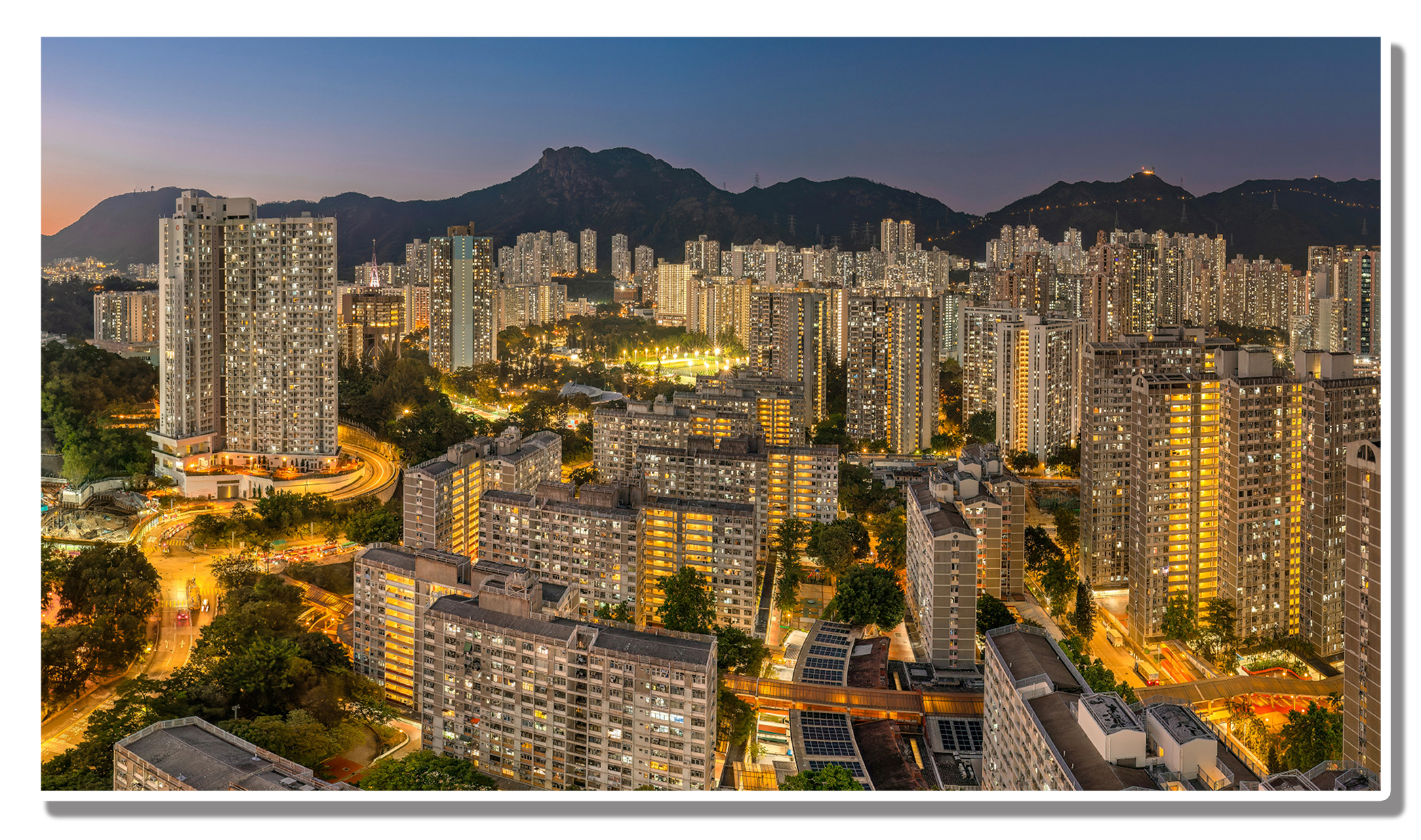
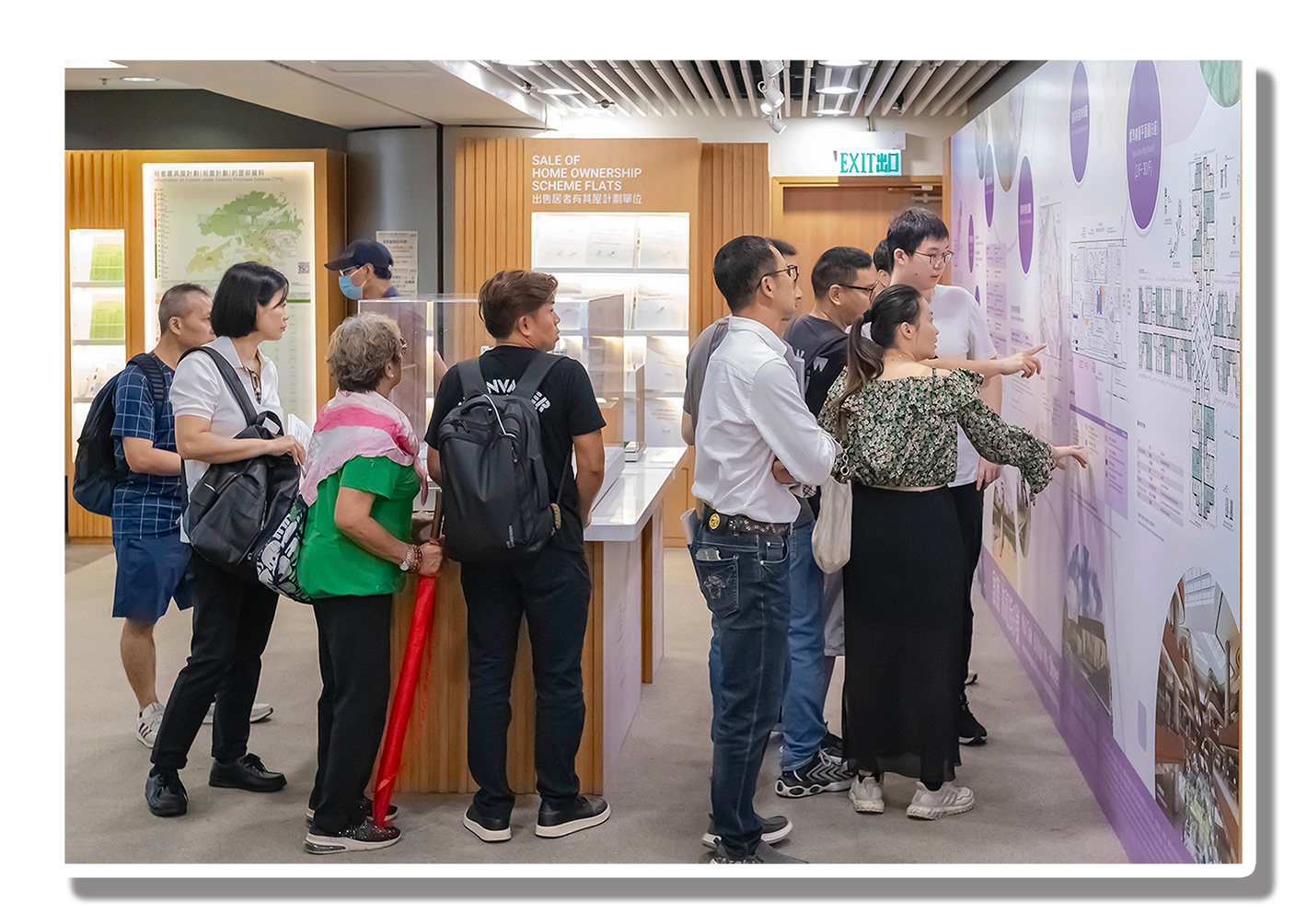
 50s
50s
 2020 to present
2020 to present
